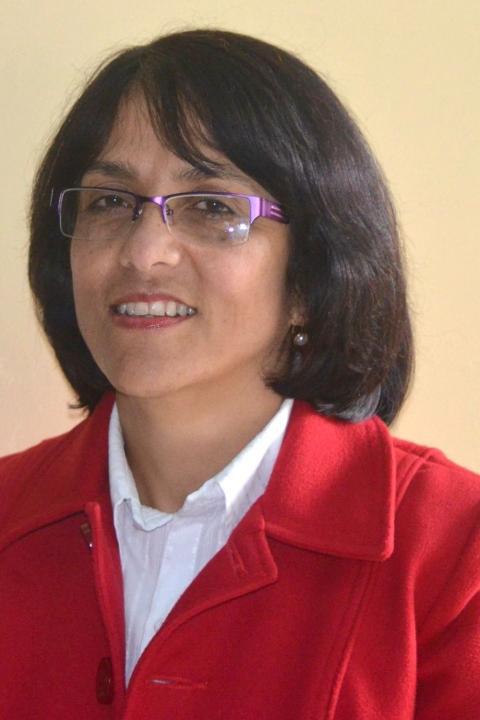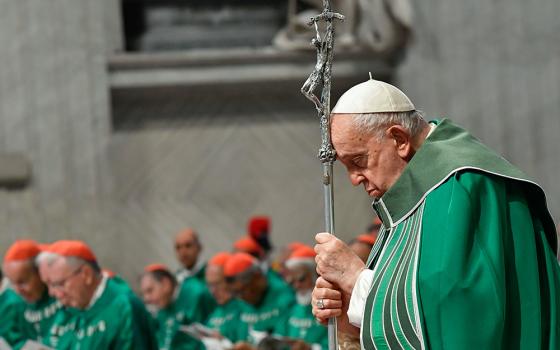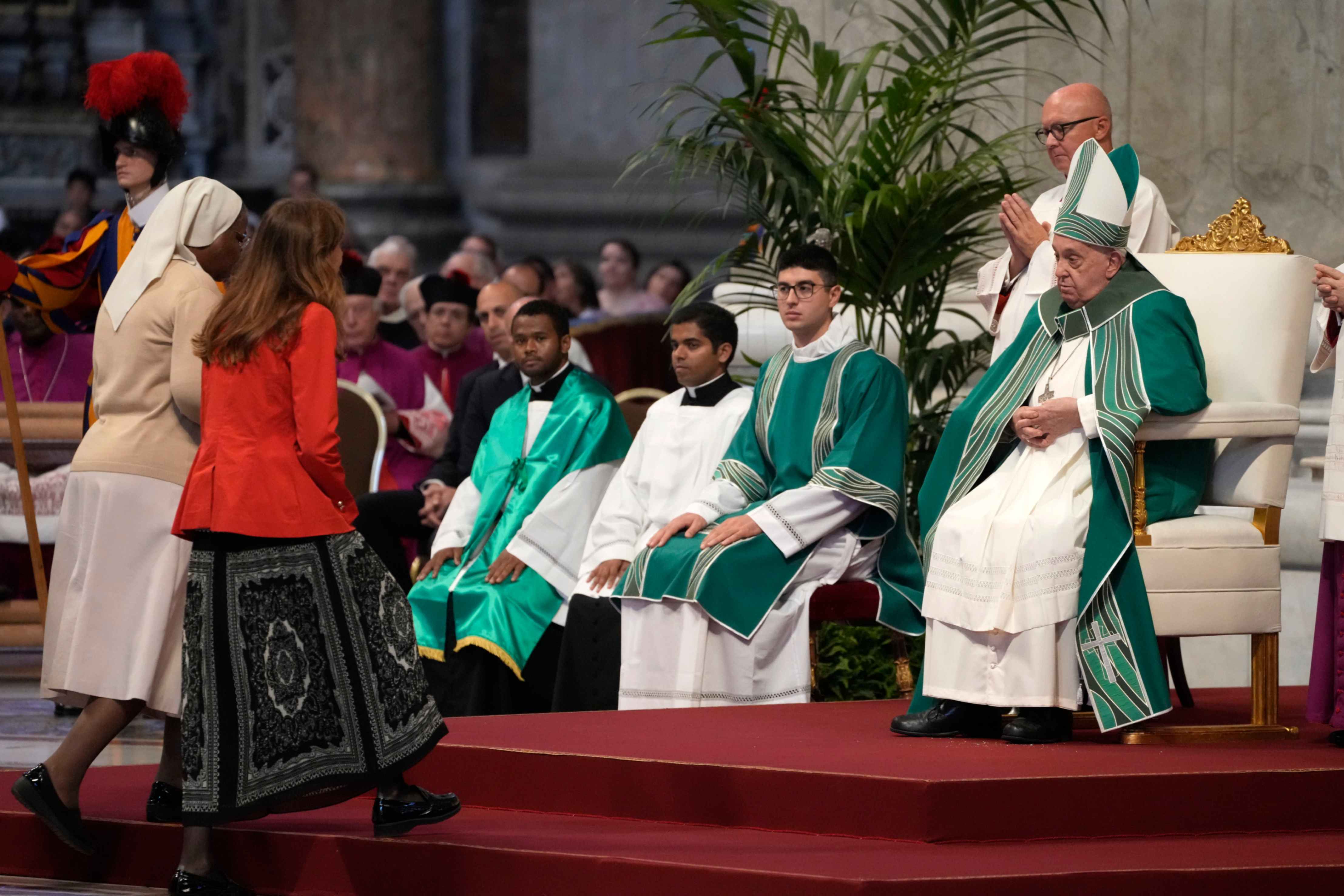
Lay theologian Consuelo Vélez calls for a transformation of clericalism to build a more inclusive church, and highlights Latin America's contribution to the synodal process promoted by Pope Francis. (AP/Gregorio Borgia)
A Latin American theologian said the argument of not allowing women to participate in certain ministries in the church because it increases clericalism is akin to saying that women should not be presidents because some presidents are authoritarian.
"We have to fight to get rid of clericalism, to transform clericalism, not to deny [women] access to ministries," said Consuelo Vélez, of the Colombian Association of Women Theologians.
Vélez, a renowned theologian in Latin America and contributor to Global Sisters Report en español, is a member of the theological committee of the Colombian Bishops' Conference. She was in Rome during the last part of the historic synod on synodality, where she spoke with GSR. The synodal process that began in 2021 and ended in October 2024 touched on expanding participation of church members in the life of the church, and to do so in a less clerical way.
Clericalism and its adverse effects, Vélez said, were on display during the synod, particularly during ceremonies where bishops still hold places of honor, and in the hall where the synod was held, if one notices that the pope's table "is a little higher" than the others; where honorific titles such as "eminence" and "excellency" for bishops were commonly used, putting distance between the people and the hierarchy.
"I wonder, why none of [the bishops] say 'Don't call me that'?"
Lay theologian Consuelo Vélez calls for a transformation of clericalism to build a more inclusive church, and highlights Latin America's contribution to the synodal process promoted by Pope Francis.
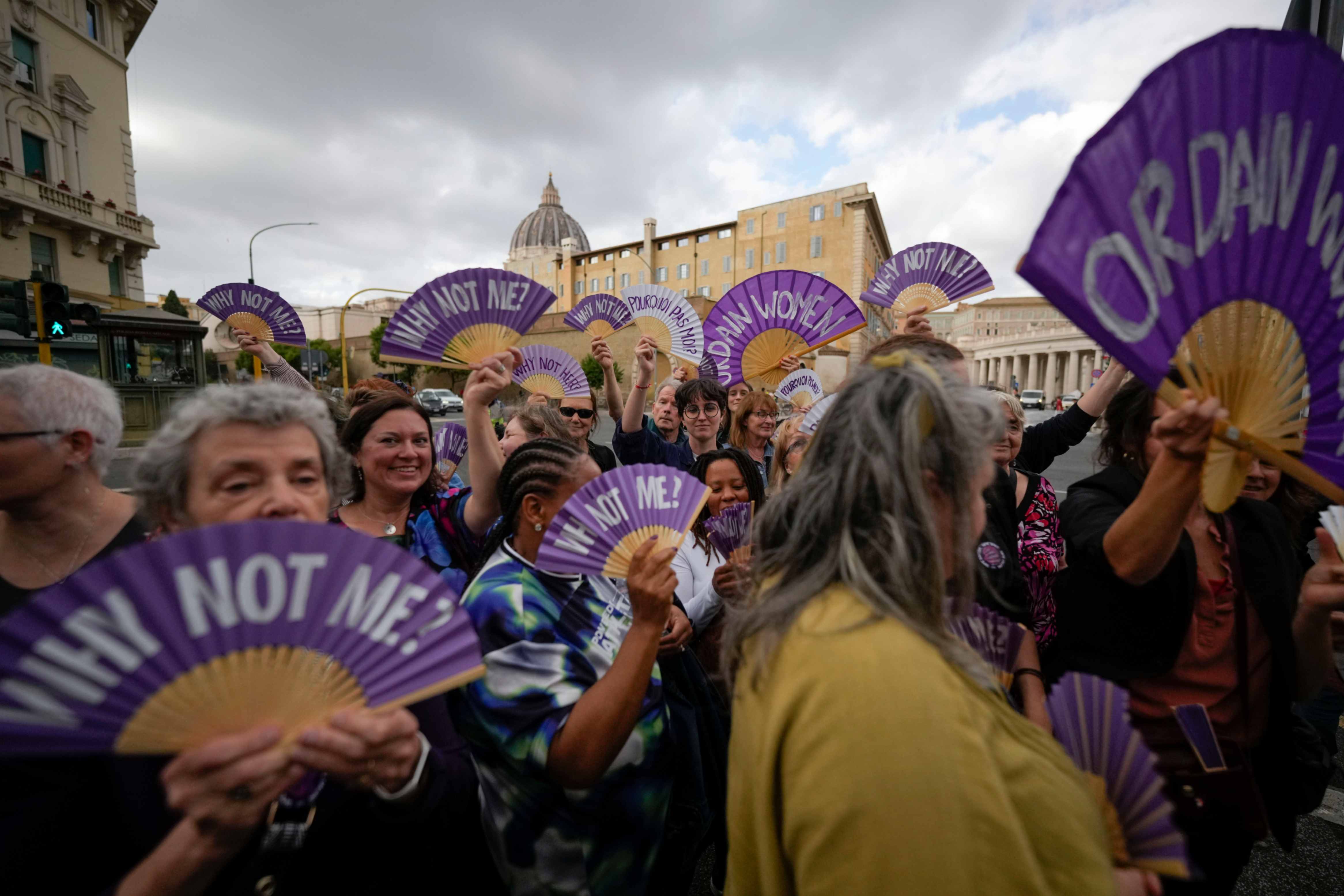
Supporters of women's ordination hold signs during a protest in Rome, outside the Vatican, where Pope Francis held the Synod of Bishops, Oct. 4, 2024. (AP/Andrew Medichini)
Certain topics, such as the role of women in certain ministries and LGBTQ+ persons, were not admitted into the synod discussion and moved to commissions.
"It seems as if we can't manage to break that barrier, bringing hierarchy into places, charisms, ministries. ... If we want to live synodality, we should also express it externally, because until it is expressed, [synodality] will remain a nice word, a word that we repeat, a word that we parrot all day long, but doesn't translate into those external realities," Vélez told GSR.
In big and small things, "it seems there always has to be some kind of distinction," she said.
The synod's final document calls for a conversion of the church, and among other things, calls for the inclusion of marginalized groups, including women; more transparency; more accountability; and for bishops to listen to the faithful whom they serve.
And even though some bishops may not agree with the synod, laypeople can still learn about it, what it calls for and apply it in their communities, Vélez said.
"No one can stop me from being part of the church as I understand it," she said. "It doesn't matter if a bishop has [a certain] attitude, because I already know that he is not the church. We are the church."
The church is not solely what the clergy says and represents, but "the one that we share in as a community, in celebrations, a little more egalitarian, in a different style," Vélez said.
Latin America, in particular, has much to contribute to this new way of being church, said Vélez, who participated in the "Synodality Tent," a series of conversations in Rome by Amerindia and the Latin American Observatory of Synodality. The efforts are part of a network of Latin American Catholics supporting the synodal process and trying to translate what it means for the region.
The synod is an ambitious project of Pope Francis that "we must support, but also enrich," Amerindia said in a report shared with GSR.
"Synodality is a liberating path for the church and above all, for the concrete life of its believers, every step taken in this avenue is a good sign of the kingdom, helping to overcome inertia, customs, structures, ways of life and relationships that are not those desired by Jesus of Nazareth and that must be eradicated, knowing that there is a long way to go and a long path to clean," the report says.
'We have to fight to get rid of clericalism, to transform clericalism, not to deny [women] access to ministries.'
—Consuelo Vélez
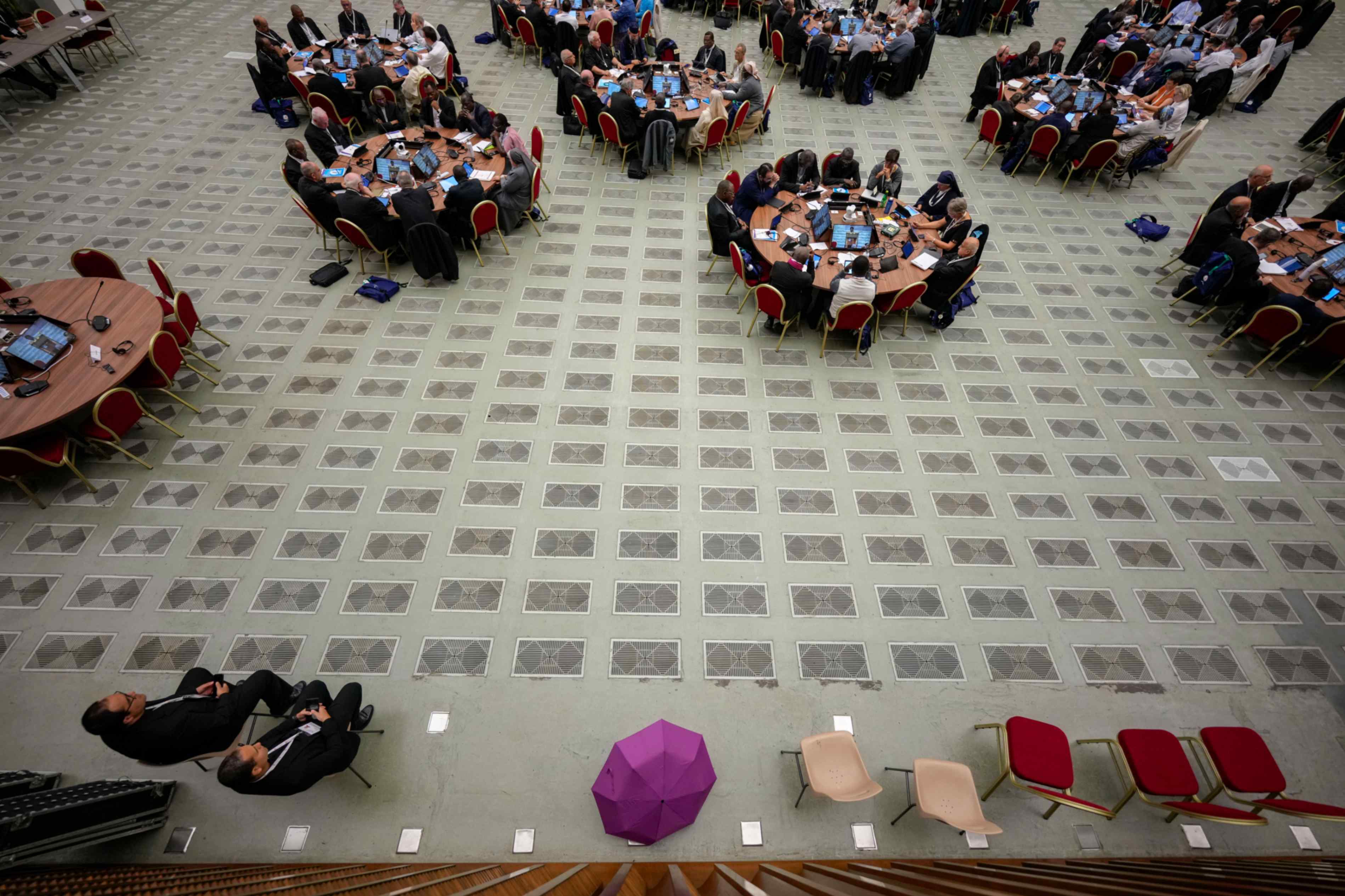
Participants attend a session of the 16th General Assembly of the Synod of Bishops in the Paul VI Hall at the Vatican, Oct. 10, 2024. (AP/Andrew Medichini)
'The Afro population has been made invisible. It's one thing for those from Africa to come as Africans, but it's another thing for the Afro population of Latin America. ... We know that the LGTBQ+ population is not represented.'
—Consuelo Vélez
Like Vélez, Amerindia says Latin America offers a model for the rest of the church after the synod.
"We not only have a strong trajectory in the construction of a theology born from the Latin American reality and product of the Second Vatican Council and Medellín but also of ecclesial processes of synodality and defense of life," Amerindia said. "Let us remember that many of the organizations that today defend human rights in Latin American countries were born as ... ecclesial institutions."
The church in Latin America is not exempt from having bishops of a certain "caste," Vélez said, but the church in the region, with its spontaneity and warmth, fulfills that desired journey of different sectors interacting as a church that was talked about at the synod. The church in Latin America has sectors committed to the popular classes, representing diverse groups and ministries, having to improvise due to the conditions of the region.
"People have had to provide more concrete services, because there is no clergy, because the places are very remote and there is no way to reach those places ... and religious [women and men] take on many duties," Vélez said. "This has made some sectors of the church be much more community-oriented and more equal."
The synod, under the instruction of Francis, took historic steps, Amerindia said, especially by including nearly 100 women in the process, and giving 54 of them a vote. Among those, 25 were women religious.
Advertisement
"This was a great step taken by Francis. We value it greatly, because never in modern ecclesial history have bishops, women and laity sat down together to listen, think and decide vital issues concerning the church. However, this is not enough," Amerindia said.
The organization said that after the synod, the church must continue to affirm that the "central protagonist of the whole church, and therefore of this synod, is the Spirit of God, of Jesus. Knowing that the first interlocutors and addressees are the 'little ones,' those who have been discarded, made invisible and excluded from many of these processes."
And there are many "peripheral groups" that were not represented, including during the synod, Vélez said.
"The pope handpicked those invited, it seems. ... The Afro population has been made invisible. It's one thing for those from Africa to come as Africans, but it's another thing for the Afro population of Latin America," whose ancestors were enslaved, to be present, she said. "And, well, we know that the LGTBQ+ population is not represented. [Jesuit] Fr. James Martin does pastoral care with them, but it's different than having one of them present."
Vélez said that, despite her criticisms, she has seen changes in the church in Latin America, particularly after the 1962-65 Second Vatican Council, which produced a much different style of church in the region following a bishops' meeting in Medellín, Colombia, in 1968.
"I have not lost hope ... because I believe that changes do not come solely from the top down, but from the bottom up," she said.
This story was originally published in Spanish.

